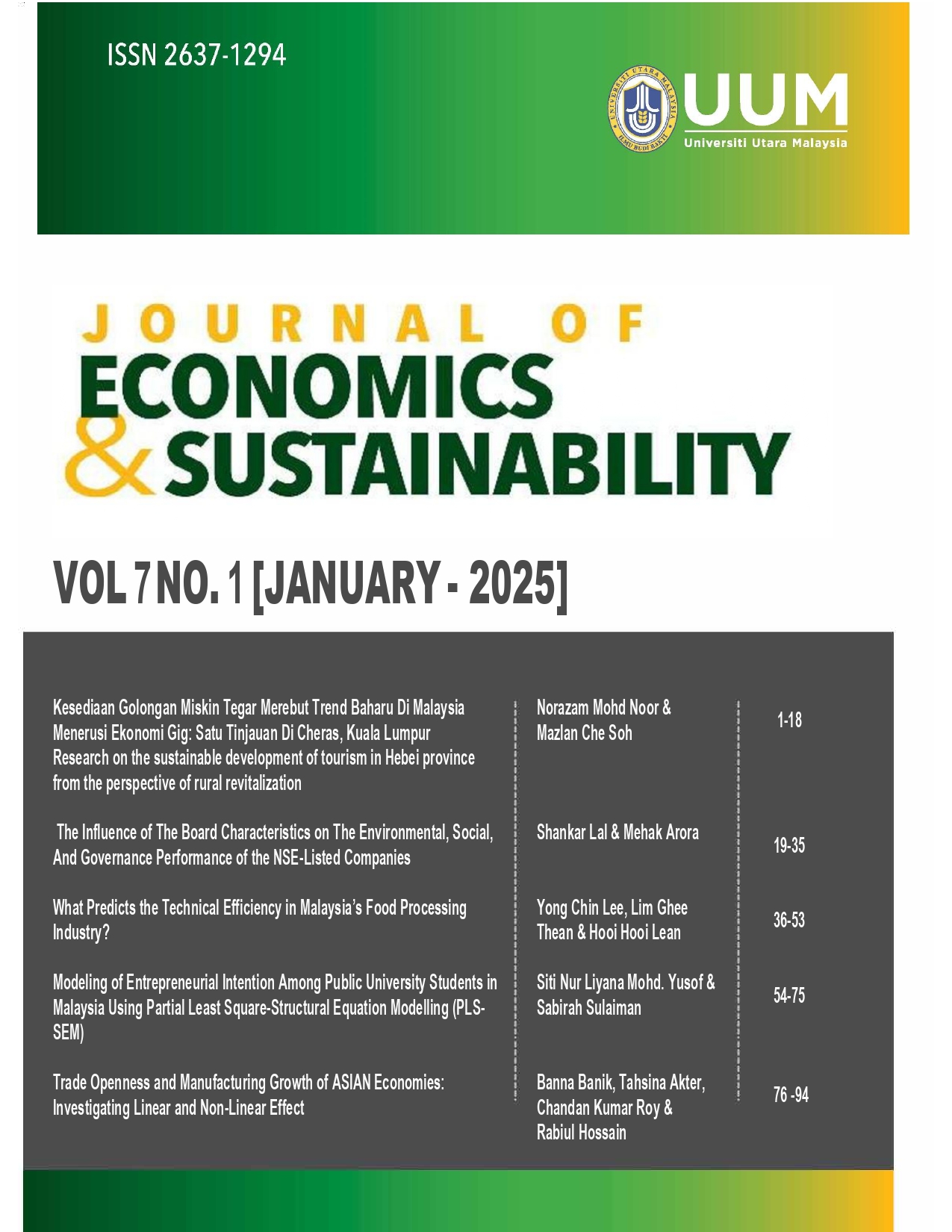WHAT PREDICTS THE TECHNICAL EFFICIENCY IN MALAYSIA’S FOOD PROCESSING INDUSTRY?
DOI:
https://doi.org/10.32890/jes2025.7.1.3.Abstract
The present study focuses on the technical efficiency of Small and Medium Enterprises (SMEs) and Large-scale enterprises (LSEs) in Malaysia's food processing industry by adopting Data Envelopment Analysis (DEA) and Tobit regression. The empirical results provide that the SMEs technical efficiency score in constant return to scale (CRS) and variable return to scale (VRS) are 0.940 and 0.986 respectively which indicates the SMEs can enhance the level of output by 6 per cent for CRS and 1.4 per cent for VRS by using the given level of inputs. Moreover, the technical efficiency level of LSE is 0.673 and 0.942 from CRS and VRS respectively. The finding also suggests that the training cost, research and development, and foreign direct investment positively affect technical efficiency while information and technology, public infrastructure, and trade openness negatively affect the technical efficiency in SMEs. On the other hand, government infrastructure and trade openness have a positive connection with the technical efficiency of LSEs in Malaysia's food processing industry. Contradiction, research and development, and world oil price are negatively affecting the technical efficiency in LSEs which means the higher of these variables, the higher the efficiency in LSEs.
Downloads
Published
Issue
Section
License
Copyright (c) 2025 Journal of Economics and Sustainability

This work is licensed under a Creative Commons Attribution 4.0 International License.






